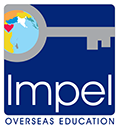🇲🇹 Malta Education System – A Complete Overview
Malta’s education system is built on a strong British framework, offering high-quality instruction in English and globally recognized degrees. Supervised by the Ministry for Education, Sport, Youth, Research and Innovation, the system combines academic rigor, vocational training, and practical learning opportunities. Malta is a favored destination for international students seeking an English-speaking education environment within the European Union.
🎓 Structure of the Maltese Education System
The education system in Malta is organized into the following levels: Early Childhood, Primary, Secondary, Post-secondary, and Tertiary (Higher Education). Education is compulsory from ages 5 to 16, with most programs taught in English.
1. 🧒 Early Childhood Education
Age Group: 3 to 5 years (non-compulsory)
Institutions: Kindergarten / Childcare Centers
Focus:
-
Early learning and development
-
Language exposure (English and Maltese)
-
Socialization, creativity, and motor skills development through play
2. 🏫 Primary Education
Age Group: 5 to 11 years
Duration: 6 years
Subjects Include:
-
English and Maltese
-
Mathematics
-
Science
-
Social Studies
-
Religion or Ethics
-
Music, Art, and Physical Education
Focus: Building literacy, numeracy, and analytical skills through bilingual instruction and inclusive learning environments.
3. 🏫 Secondary Education
Age Group: 11 to 16 years
Duration: 5 years
Structure: Forms 1 to 5
Culminates In: Secondary Education Certificate (SEC) Examination
Subjects Include:
-
Core: English, Maltese, Mathematics, Science, and Religion
-
Optional: Business, Geography, History, Computer Studies, Arts
Focus: Preparing students for post-secondary education or vocational pathways. SEC results are crucial for entry into further education.
4. 🏫 Post-Secondary Education
Age Group: 16 to 18 years
Options:
-
Junior Colleges: Academic route leading to Matriculation Certificate
-
Vocational Colleges: Offered by MCAST and ITS (Institute of Tourism Studies)
-
Sixth Forms: Specialized schools preparing students for A-levels or equivalent
Qualifications: Matriculation Certificate or Vocational Qualifications (MQF Level 3–4)
Focus: Skill-building for either university-level education or direct entry into the workforce.
🎓 Higher Education (Tertiary Education)
Malta’s higher education system is part of the European Higher Education Area (EHEA) and follows the Bologna Process, enabling easy degree comparability and mobility across Europe.
🏛️ Universities & Institutions
-
University of Malta (UoM) – Malta’s primary public university offering Bachelor’s, Master’s, and Doctoral degrees in Arts, Sciences, Engineering, Law, Medicine, and more
-
Malta College of Arts, Science & Technology (MCAST) – Offers applied and technical programs at diploma, undergraduate, and postgraduate levels
-
Institute of Tourism Studies (ITS) – Specialized in hospitality and tourism education
-
Private institutions offering degrees validated by UK or EU universities
📘 Maltese Higher Education Qualifications
Malta adopts the LMD (Licence-Master-Doctorate) model:
| Level | Maltese Term | Duration | International Equivalent |
|---|---|---|---|
| MQF Level 6 | Bachelor’s Degree | 3–4 years | Undergraduate (Honours) |
| MQF Level 7 | Master’s Degree | +1–2 years | Postgraduate Degree |
| MQF Level 8 | Doctoral Degree (PhD) | +3 years | Doctorate / Research Degree |
All qualifications are referenced to the Malta Qualifications Framework (MQF) and the European Qualifications Framework (EQF).
🌟 Additional Highlights
✔ English-Taught Programs: All tertiary-level education is delivered in English, eliminating language barriers for international students
✔ Globally Recognized Degrees: Accredited by MFHEA and widely accepted across the EU and internationally
✔ Affordable Tuition Fees: Bachelor’s and Master’s programs typically cost €6,000–€12,000/year
✔ Flexible Entry Options: Based on academic background, experience, and recognized certifications
✔ Vocational Focus: Strong emphasis on skills training and job-readiness, especially in tourism, ICT, healthcare, and logistics
✔ Research & Innovation: Growing investment in sectors like blockchain, AI, marine science, and health innovation
📚 Academic Calendar
-
Autumn Semester: October to January
-
Spring Semester: February to June
-
Semester-based examinations and optional summer internships
Admission Support Kit – Malta
| SOP – Do’s & Dont’s |
||||
| Sample SOP | ||||



